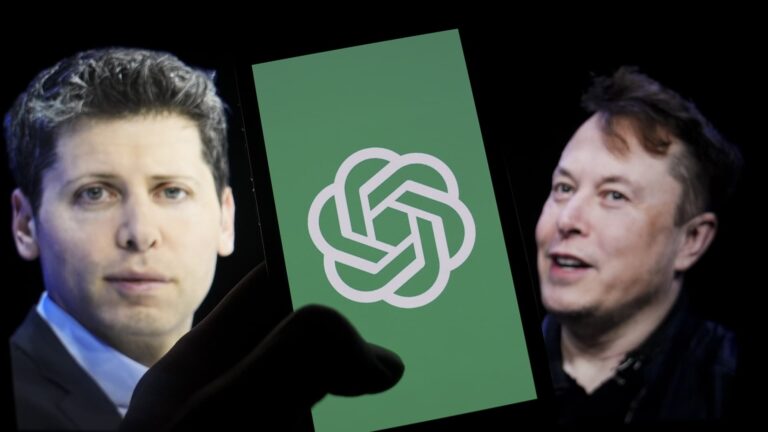Sam Altman, left, and Elon Musk.
Muhammed Selim Korkutata | Anadolu | Getty Images
A group of 12 ex-OpenAI staffers, in support of Elon Musk’s lawsuit against the artificial intelligence startup, asked a court’s permission on Friday to share their concerns about the company’s transformation into a for-profit entity.
The individuals collectively worked at OpenAI between 2018 and 2024, which covers “the organization’s formative years through its more recent development,” the request said. The brief was filed with a district court in California by Lawrence Lessig, who is representing the group.
The purpose of the request is to support Musk’s arguments in his case against OpenAI and his effort to keep the AI research project, which Musk co-founded in 2015 as a nonprofit, from transforming into a for-profit entity.
“If the OpenAI Nonprofit agreed to a change in the OpenAI corporate structure which took away its controlling role, that would fundamentally violate its mission,” the filings says.
OpenAI, led by CEO Sam Altman, has been commercializing products in recent years, most notably its viral ChatGPT chatbot, which was launched in late 2022. The company is still overseen by a nonprofit parent and has faced significant hurdles in its goal to restructure into a for-profit, due largely to Musk, who has become one of Altman’s chief adversaries and now has his own rival startup, xAI.
A Musk-led group offered to buy OpenAI in February for $97.4 billion, an bid that was swiftly rejected. Last month, OpenAI closed a $40 billion funding round led by SoftBank at a $300 billion valuation, the largest private tech funding on record.
OpenAI’s hybrid structure includes a capped-profit limited partnership created in 2019. The original nonprofit is the controlling shareholder and would be spun out as an independent entity if the company restructures. OpenAI’s venture backers have received convertible notes that would turn into equity.
In the Friday brief, Lessig wrote that, in addition to abandoning its original mission, the conversion to a for-profit company would “breach the trust of employees, donors, and other stakeholders who joined and supported the organization” based on its commitments.
The ex-staffers named in the brief are Steven Adler, Rosemary Campbell, Neil Chowdhury, Jacob Hilton, Daniel Kokotajlo, Gretchen Krueger, Todor Markov, Richard Ngo, Girish Sastry, William Saunders, Carrol Wainwright and Jeffrey Wu. Some have spoken out about their experiences at OpenAI in the past.
The filing said the named parties also “have a significant interest in this litigation as it addresses fundamental questions about OpenAI’s mission and organizational structure that they helped shape during their employment.”
The case between Musk and OpenAI has taken numerous turns since the Tesla CEO initiated litigation early last year, alleging the company abandoned its founding mission to develop artificial intelligence “for the benefit of humanity broadly.” A federal district court last month blocked Musk’s attempt to stop OpenAI’s transition to a for-profit company.
Earlier this week, OpenAI filed a countersuit against Musk, claiming the world’s richest person has “tried every tool available to harm” the company. That lawsuit is asking for punitive damages from Musk’s actions and an injunction to stop him from interfering further in its operations.
WATCH: OpenAI closes $40 billion funding round


